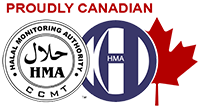In recent years, the global Halal food business has expanded rapidly. Consumer demand for food has also shifted significantly. Along with the national goal of becoming our country the world’s halal hub, the business is growing in popularity and providing halal food manufacturers opportunities to increase their target market locally and globally. Today, halal is not just associated with religious concerns, but it is also seen as a standard of choice for both Muslim and non-Muslim customers. As a result,Non-Muslim customers are familiar with the concept of halal. Therefore, there is a big potential to tap into the non-Muslim community’s eating preferences. Consumers today are increasingly conscious of the value of health, which influences their food consumption habits. They look for meals that will keep them healthy and boost their mental condition and overall quality of life. Consumption of halal food is an essential component of Islam. The significance of food in cultural behaviors and religious beliefs is multifaceted, yet Muslim adherents have a common view. For example, the halal logo or label informs and persuades Muslim consumers that the food product is manufactured and prepared by Islamic requirements. Non-Muslim consumers, on the other hand, understand that food items with the emblem are ready in the most sanitary and clean manner for consumption. Furthermore, it has been demonstrated that non-Muslim consumers respond favorably to halal food certification.
Non-Muslims make up 38.7 percent of the Canadian population. This relatively high proportion of non-Muslim customers may imply a possibility for this market to be accessed as a niche halal market, which may contribute more to the expansion of the halal food sector.
By affixing the halal label on the goods, the company declares that it is assured and assists Muslim and non-Muslim customers in selecting the best option for themselves. With the spread of halal products, non-Muslims are becoming aware of items bearing Islamic labels and becoming accustomed to eating these halal-labeled meals. Concerning the halal logo, Muslims claim that seeing a halal mark on a product helps them pick halal meat, food, or drinks that they can readily eat. Non-Muslim customers, on the other hand, are not surprised because practically all food and beverage goods on the market are halal-labeled. Many non-Muslim customers choose to buy and consume halal cuisine since it is healthier.
Every country has its certification body that helps Muslim and non-Muslim customers in this regard. ”HALAL MONITORING AUTHORITY CANADA” understands its need, so devises a three-step inspection system. Our experts are with the manufacturers throughout the process. HMA was founded to assist producers in gaining a bigger share of the lucrative Halal food industry. HMA aspires to be the most dependable, reputable, and competent Halal food certifier.
Halal monitoring authority has become a worldwide recognized emblem of Halal integrity because of its Halal certification and auditing services. HMA is a prominent Halal Certification authority worldwide recognized in all sectors of the Halal business, including meat and poultry, slaughter, and production services.so if you want to find out about halal meat Toronto, visit our website. we have a list of certified stores
Halal education, evaluation of certification processes and procedures, and addressing simple inquiries such as “What is Halal?” to more complicated concerns like additives, preservatives, flavorings, and colorings are all part of what we do HMA daily. In essence, the HMA provides a resource for consumers and companies seeking knowledge about Halal goods, processes, and practices.
The halal idea stresses these items’ safety, cleanliness, and utility. Foods with the halal mark are thought to be safe. As a result, it appears that non-Muslims have a favorable attitude toward halal items, particularly halal cuisine.
Halal food is an outstanding cuisine available to both Muslim and non-Muslim consumers. Due to its deep concerns about health, environmental, and quality issues, it is available in various outlets, including food standards associated with human welfare, sustainability, and social justice.
Non-Muslims are seen as contributors to this thriving industry. For example, in Europe – primarily in the United Kingdom, France, Germany, and Holland – halal restaurants draw many non-Muslim visitors looking for unusual foods and halal cleanliness and safety requirements. Many non-Muslim destinations have incorporated halal food culture and cuisine into their tourism products to attract a larger market segment of tourists and differentiate themselves from competitors. Halal-themed local culinary traditions, lifestyles, and heritage associated with Muslims attract Muslim and non-Muslim tourists.
As Canada becomes increasingly diversified, food producers will have more opportunities to distinguish their goods and garner price premiums. However, like with any market niche, the marketer must become acquainted with the consumer. The Muslim audience adheres to religious beliefs that limit their dietary choices. Producers may broaden their markets and boost profitability by supplying items that match Muslims’ and non-Muslims mandated diets.



